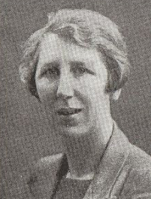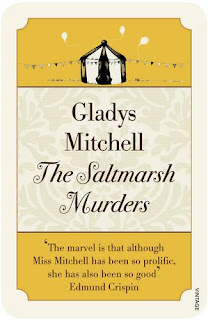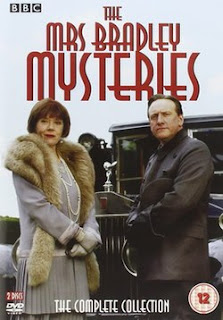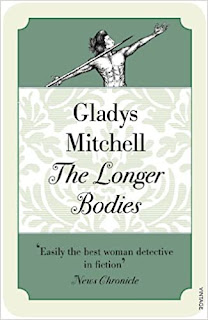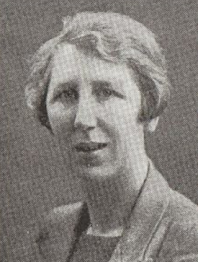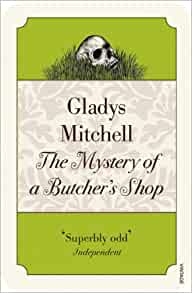Trip to Greek temple is both eventful and educational
 |
| Come Away, Death is one of Mitchell's more bizarre mysteries |
Sir Rudri
Hopkinson, who is regarded by many people as eccentric, but is suspected of
being deranged by others, takes his children and some of their friends, a rival
scholar, a photographer to record events, and psychoanalyst Mrs Beatrice
Lestrange Bradley, to the Temple of Eleusis to try to recreate ancient rituals
as closely as possible in the hope of summoning the goddess Demeter.
Some strange
events occur during the journey and, after one of the group disappears, and a severed
head turns up in a box of snakes, Mrs Bradley decides she needs to investigate
what is going on.
In her
eighth novel to feature the psychoanalyst and amateur detective Mrs Bradley,
Gladys Mitchell breaks with convention by letting the inevitable murder occur a
long way into the story, which was unusual at the time the novel was written.
Mrs Bradley
makes friends with some small boys who are in the party and enlists their help
with her sleuthing. She once again shows herself to be at ease with young
people, perhaps reflecting qualities possessed by Gladys Mitchell, who was a
teacher for many years.
One of the
boys had been quick to point out to her at the start of the expedition that the
number of travellers in Sir Rudri’s tour group was an unlucky thirteen, but Mrs
Bradley says she is not superstitious.
.jfif) |
| Gladys Mitchell took her title from the lyric of a song in Twelfth Night |
When the
inevitable demise occurs, Mrs Bradley, who is herself highly educated, uses
both her knowledge of Greek mythology and background in psychology to help her
solve the case.
I found the
way Gladys Mitchell tells the story, without losing my interest despite the
many references to Greek mythology made along the way, is testimony to her
talent as a writer.
The title of the 1937 mystery, Come Away, Death, was taken from a line in the lyric of a song in Shakespeare's Twelfth Night. One of the characters sings:
'Come away, come away, death, and in sad cypress let me be laid; Fly away, Fly away, breath, I am slain by a fair cruel maid.'
It is interesting to note that Agatha Christie may have got the idea for the title of her 1940 Poirot novel, Sad Cypress, from the same song written by Shakespeare.

